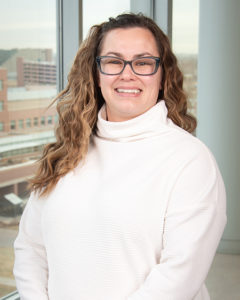

June 3, 2021
Webinar
1:00 p.m. – 2:30 p.m. ET
90-minute presentation
CLE: 1.50 Credits
One of the most critical keys to the identification, investigation and prosecution of a child abuse case is a successful forensic interview of the child. This interview is the foundation on which the case is built and if there is no case as a result then it may serve in the prevention of child maltreatment. As we know, children’s disclosures are the strongest, if not only, pieces of evidence and are vital to identification and prosecution. The faculty members will look at the issues that confront investigators, forensic interviewers, and prosecutors when faced with a case involving a child. They will discuss techniques we can all use to improve our practices and ensure quality control and consistency across forensic interviews. Some issues that will be discussed include : models for the forensic interview of a child or adolescent which can be adapted to children of different ages and cultural backgrounds; interview techniques for interviewing children who may have experienced sexual or physical abuse or who may be a witness to violence against another person; factors influencing the interview; the presence or absence of multidisciplinary teams and child advocacy centers; the potential legal issues that arise when interviewing and preparing young people for court; factors to consider in determining whether, when, and how your victim may disclose abuse; avoiding questions that may elicit potentially erroneous responses; childhood developmental delays; working with the victim’s family; unique defenses and defense expert witnesses; building corroboration; special considerations around child pornography and trafficking. Join our experienced faculty members and learn the most effective techniques for working with young witnesses, including best practices in forensic interviews and trial preparation.
Presented by:

Amber McDonald, Ph.D., LCSW
Deputy Director of and Assistant Professor
Stress, Trauma, Research, Trauma & Adversity (START) Clinic
University of Colorado School of Medicine, Department of Psychiatry

Adrian VanNice
Chief Trial Deputy
Office of the 20th Judicial District Attorney
Boulder, Colorado
Cost:
Members: $64.00
Non-Members: $85.00
If you would like to become a member, please join here!
Interested in a scholarship? Apply now!
The National District Attorneys Association (NDAA), with the assistance of the American College of Trial Lawyers Foundation, is able to provide tuition assistance for Prosecutors who would like to attend our courses. We have a limited number of full tuition scholarships available. Please find information regarding scholarship eligibility and the application process here.
Continuing Legal Education Credits: 1.50 hours
NDAA has applied for CLE credit in the states of Georgia, Kansas, Ohio, Pennsylvania, South Carolina, and Virginia.
Zoom will log each attendee’s “time in session” for the webinar. All attendees who sign into the webinar and complete the session will be sent a copy of the PowerPoint presentation, speaker biography, and a Uniform CLE Certificate from NDAA staff following the event.
Attendees must self-submit this course for approval in their home state. All attorneys are responsible for any fees associated with CLE filing. Attorneys seeking CLE credit should contact their state bar associations for more information. General questions or additional information regarding CLE credit can be directed to Project Coordinator Logan Kilduff at lkilduff@ndaajustice.org.
NDAA’s mission to serve and support prosecutors and their staff. In consideration of this commitment, NDAA requires that all those in attendance of our programs currently work in or work closely with prosecution. This training is designed for prosecutors, lawyers and paralegals in local, state, tribal, federal and military government attorneys’ offices who work on behalf of child abuse victims and their families, law enforcement, victim advocates and victim-witness professionals, child abuse task force or coalition members, shelter and social workers, child protective services personnel, other members of the criminal justice system, community stakeholders and health care professionals to attend. If you are not sure about your eligibility, please contact Project Coordinator Logan Kilduff at lkilduff@ndaajustice.org.
Visit our sponsorship opportunities page for more information on how your organization can connect with NDAA attendees.
NDAA works to provide a safe and secure environment for partners and participants. By registering for this event, you agree to abide by NDAA policies and acknowledge the disclaimer and waiver. For more information on NDAA’s policies and procedures, including our Code of Conduct, please visit our Policies page.
NDAA Cancellation, Refund & Substitution Policy*:
NDAA will gladly offer training course attendees a credit for the full course amount which you or an office colleague can use for the rescheduled course or a future NDAA course of your choosing prior to September 30, 2021. As always, substitutions are accepted at any time. Note, NDAA regrets that cash refunds are not available. Please submit all requests to NDAA in writing via email to Project Coordinator Logan Kilduff at lkilduff@ndaajustice.org.
*NDAA reserves the right to update this policy on an as-needed basis.
Please contact training@ndaajustice.org.
National District Attorneys Association
1400 Crystal Drive, Suite 330
Arlington, VA 22202
Copyright © 2025 National District Attorneys Association Admin Legal Disclaimer